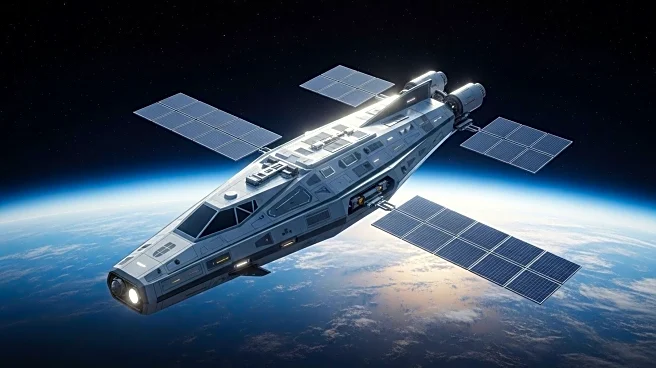What's Happening?
Northrop Grumman's Cygnus XL cargo spacecraft, on its inaugural mission to the International Space Station (ISS), has encountered a thruster malfunction, delaying its arrival. The spacecraft, which launched on a SpaceX Falcon 9 rocket, was scheduled to dock with the ISS on September 17, 2025. However, the main engine stopped prematurely during two critical burns intended to raise the spacecraft's orbit. Despite this setback, all other systems on the Cygnus XL are reported to be operating normally. The mission, designated NG-23, is intended to deliver 11,000 pounds of scientific investigations and supplies to the ISS.
Why It's Important?
The delay in the Cygnus XL's mission underscores the complexities and potential risks involved in space logistics and supply missions. This mission is particularly important as it marks the debut of the Cygnus XL, a larger and more capable version of Northrop Grumman's cargo spacecraft. The successful delivery of cargo is crucial for the continued operation and research activities aboard the ISS. The incident also highlights the competitive and collaborative dynamics in the space industry, with Northrop Grumman and SpaceX being key players in NASA's Commercial Resupply Services program. Resolving the issue promptly is essential to maintain the schedule of future missions and uphold Northrop Grumman's standing in the space sector.
What's Next?
NASA and Northrop Grumman are working to address the thruster issue and determine a new schedule for the Cygnus XL's arrival at the ISS. The resolution of this problem will be closely watched by industry stakeholders, as it may influence future mission planning and the development of next-generation spacecraft. The outcome will also impact Northrop Grumman's ability to fulfill its contractual obligations with NASA and maintain its competitive edge in the space logistics market.









